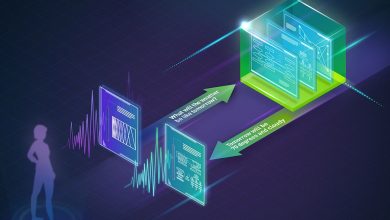Why Cyber Resilience is Non-Negotiable for ASEAN’s Cloud-First Organisations

By Michel Borst, Area Vice President of Asia at Commvault
 In today’s rapidly evolving threat landscape, organisations must shift their focus from mere cybersecurity awareness to establishing comprehensive cyber resilience, particularly as we move toward a cloud-first world.
In today’s rapidly evolving threat landscape, organisations must shift their focus from mere cybersecurity awareness to establishing comprehensive cyber resilience, particularly as we move toward a cloud-first world.
While cybersecurity primarily focuses on preventing attacks, cyber resilience ensures the ability to anticipate, withstand, and swiftly recover from attacks or compromises, even in distributed, cloud-based environments. This shift is critical as the global cost of cybercrime is projected to reach US$23 trillion by 2027, making business continuity, minimised downtime, and rapid recovery in the face of inevitable breaches essential for cloud-first organisations striving to maintain trust and operational stability.
Our recent State of Data Readiness report underscores the urgency of this shift, revealing that an alarming 71% of ASEAN companies experienced at least one cyber-attack in the last 12 months. These multifaceted attacks targeted a mix of production, secondary, and backup environments, with 10% experiencing disruptions across all three. For organisations in a cloud-first world, this reality underlines the importance of a proactive resilience strategy that spans cloud, on-premises, and hybrid environments, protecting against financial losses, reputational damage, and eroded public trust.
Cloud-First Business Continuity and Security
Developing true cyber resilience in a cloud-first world requires a holistic approach. This includes investing in robust cloud solutions, fostering a cybersecurity-aware culture, testing incident response plans regularly, and ensuring close collaboration between IT, security, and business teams. Cloud-based AI and automation have proven transformative in enabling organisations to maintain continuous operations while proactively managing security in the cloud.
With over 2000 cyber-attacks occurring daily—one every 39 seconds—traditional security tools are often too slow to keep up. However, AI’s ability to process vast amounts of data across cloud and on-prem environments, detect patterns, and adapt to emerging threats enables faster threat detection and response, critical for organisations relying on cloud-first infrastructure. Our report found that 74% of ASEAN companies are either currently deploying AI for cybersecurity or plan to adopt it soon, recognising the critical role AI plays in resilience and operational efficiency in cloud environments.
AI’s versatility across different security needs further supports cloud-first resilience. For example, our study found that 41% of ASEAN organisations use AI defensively (e.g., firewall management), while 36% employ it offensively (e.g., phishing simulations). Additionally, 23% leverage AI for both defensive and offensive tasks, showcasing how AI empowers cloud-first organisations to anticipate, adapt, and secure their distributed environments.
Bridging Regional Gaps in AI and Cloud Adoption
While the cloud and AI are central to resilience, adoption rates vary across the region. Indonesia, Philippines, and Thailand have seen higher uptake of AI and cloud-first strategies compared to Malaysia, Singapore, and Vietnam, highlighting the need for broader education and support to unlock the full potential of AI-driven resilience across ASEAN.
Furthermore, a solid data foundation is essential for successful cloud-first cyber resilience. This includes cloud-native data management practices such as discovery, classification, and governance, which provide the structure needed for AI to deliver accurate, effective insights and responses.
Navigating a Cloud-First Future with Resilience and Security
As cyber threats evolve, organisations in a cloud-first world will increasingly rely on AI and automation to maintain cyber resilience and uninterrupted operations. The future of cybersecurity is autonomous, intelligent, and adaptable, empowering organisations to protect their cloud and hybrid environments effectively. Those who prioritise resilience in their cloud strategies and harness AI-driven insights will be well-prepared to navigate the challenges of today and tomorrow, ensuring they remain robust, trusted, and ready for the cloud-first era ahead.




